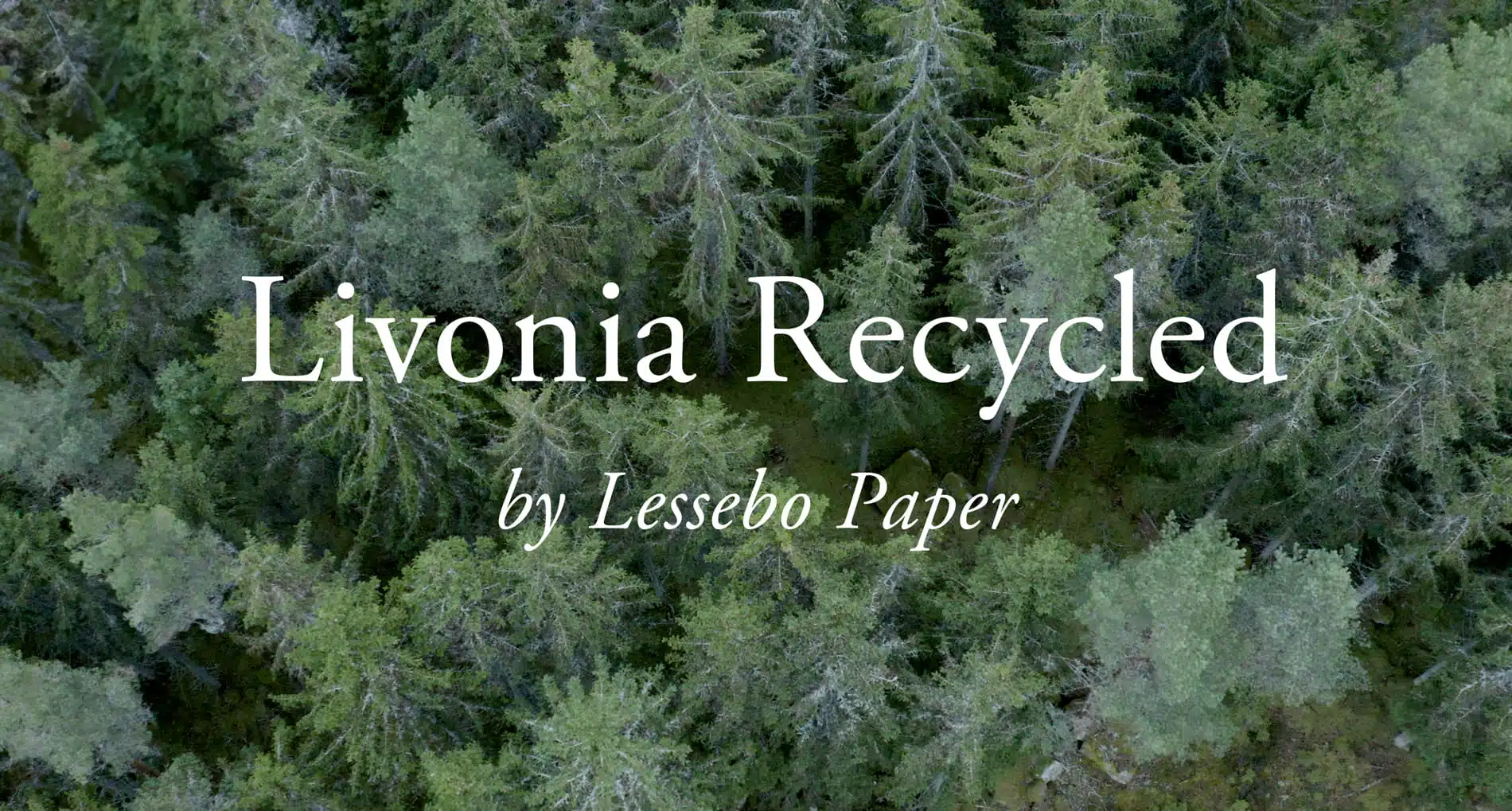Lessebo Paper, Livonia Print and Bonnier Books launches Livonia Recycled by Lessebo Paper: a new milestone in sustainable paper production
May 23, 2024

Lessebo Paper, Livonia Print and Bonnier Books take the next step in reducing the ecological footprint of book production by launching a new paper, produced from recycled paper waste.
Lessebo Paper, Livonia Print and Bonnier Books have cooperated for some years with the objective of reducing the environmental impact of book production. The cooperation resulted in in the launch of “Livonia Zero Offset by Lessebo Paper” in the beginning of 2023. Today, we are launching a new product – “Livonia Recycled by Lessebo Paper” produced from unprinted paper waste from Livonia Print. The paper is developed for high quality printing in a selected range of grammages and sizes adapted for book production.
“Reflecting on the first year our cooperation with Livonia Print and Bonnier Books, we are proud of the achievements and industry acceptance of ‘Livonia Zero Offset by Lessebo Paper” says Jens Olson, CEO at Lessebo Paper.
The paper quality “Livonia Zero Offset by Lessebo Paper” has become the preferred choice for many publishers committed to reducing their carbon footprint. By choosing “Livonia Zero Offset by Lessebo Paper”, Bonnier Books have reduced their CO2 emissions by an estimated 1 400 tonnes in 2023 alone. The exceptional environmental credentials of “Livonia Zero Offset by Lessebo Paper”, with a carbon footprint of less than 11 kg of CO2 per tonne paper, have set a new standard for sustainability in the industry.
Now, Lessebo Paper, Livonia Print and Bonnier Books take the next step in sustainable book production with the launch of “Livonia Recycled by Lessebo Paper”. Through this initiative, Lessebo Paper collects unprinted paper waste accumulated at Livonia Print, and transforms it into high-quality paper for printing. This process does not only minimise waste but also reduces the environmental impact of paper- and book production, contributing to a more sustainable future. For instance, the initiative promotes circularity and reduces unnecessary downgrading by transforming unprinted waste into high-quality paper, maintaining high performance and functionality. The paper is FSC Recycled® certified. By utilising unprinted waste material, there is no need for extensive and chemically demanding deinking process, which normally is necessary for printed paper waste.
The project entails an innovative set-up where companies through the supply chain work together for a collective goal – promoting circularity of materials. “Recycled paper has long been available, but achieving the necessary volume, availability and quality for large-scale book production has always been a challenge. This initiative represents a first step toward not only expanding the use of recycled paper, but also minimising both waste in our industry and transport emissions; when paper is delivered to the printer, paper waste can be brought back to the mill in the same truck. Moving forward, we are committed to spreading the word and forging partnerships with more printers to further increase our supply of paper waste, thereby enhancing our contribution to a more sustainable future.” says Markus Guldstrand, Production Director at Bonnier Books.
Karl-Adam Bonnier’s autobiography En ny tid (”New Beginnings”) is the first book printed on “Livonia Recycled by Lessebo Paper”, with its release scheduled for May 23rd.
“Bonnier Books chose Karl-Adam Bonnier’s autobiography En ny tid (”New Beginnings”) to be the first book printed on this high-quality recycled paper. ‘Livonia Recycled by Lessebo Paper’ is a good example of finding new solutions to a traditional process, much like the theme of Karl-Adam’s book, where he describes the renewal of an old financial system through entrepreneurship and audacity. It’s a perfect match” says Albert Bonnier, Senior Publisher, Bonnier Books.
Jens Olson at Lessebo Paper concludes; “As we look ahead, the launch of ‘Livonia Recycled by Lessebo Paper’ represents another milestone in our journey to become part of a circular economy. We remain dedicated to supporting our partners and clients in reducing their ecological footprint and look forward to continued collaboration in promoting sustainability throughout the publishing sector.”
